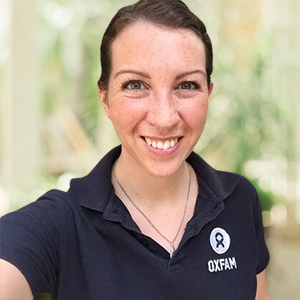Country Experience: Bangladesh, Belarus, Djibouti, Ethiopia, Greece, Jordan, Kenya, Madagascar, Mozambique, Nepal, Nigeria, Philippines, Sierra Leone, Sudan, Syria, Tanzania, Turkey.
Michelle is a specialist in public health and community engagement. She has more than 15 years professional experience in the fields of capacity building, public health, epidemic preparedness and response and community engagement, which includes over 8 years working in low-income countries and first phase humanitarian emergencies. Her experience includes multiple categories of humanitarian crisis and response, protracted disasters, post emergency planning and long-term development.
Michelle has worked with several humanitarian NGOs, including Water Aid in Madagascar, International Medical Corps in Syria, and Oxfam in multiple humanitarian contexts. Through her work with Oxfam, she has delivered a range of action-research projects including:
● A partnership defined quality project between rural communities and the Ministry of Health in Sierra Leone.
● A desk study of the impact of socio-cultural perspectives on humanitarian response.
● A participatory design project that bought together female Rohingya refugees and female Bangladeshi architects to collaboratively design sanitation facilities in Cox’s Bazaar (the Social Architecture Project).
Most recently, Michelle led the public health component of Oxfam’s COVID-19 Task Force, providing advice on preventative measures for the Oxfam Confederation. She is currently leading a research project for Oxfam, in collaboration with Help Age and the University of Leeds, looking at the incontinence needs of older people in humanitarian emergencies.
Prior to working with Oxfam, Michelle led capacity building initiatives for RedR UK, focusing on building humanitarian capacity in WASH and Shelter. She supported the roll out of a WASH specific monitoring system for UNHCR, and a WASH sector capacity analysis in Sudan.
Michelle has Masters degrees in Humanitarianism and Conflict Response from the University of Manchester, and Public Health from London School of Hygiene and Tropical Medicine.
